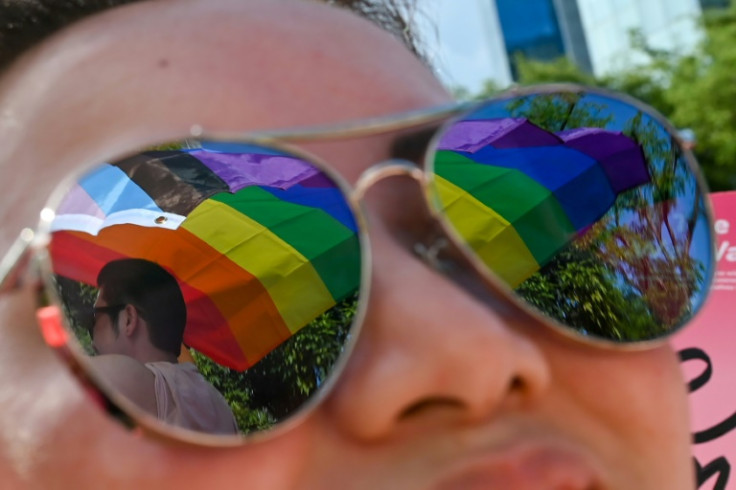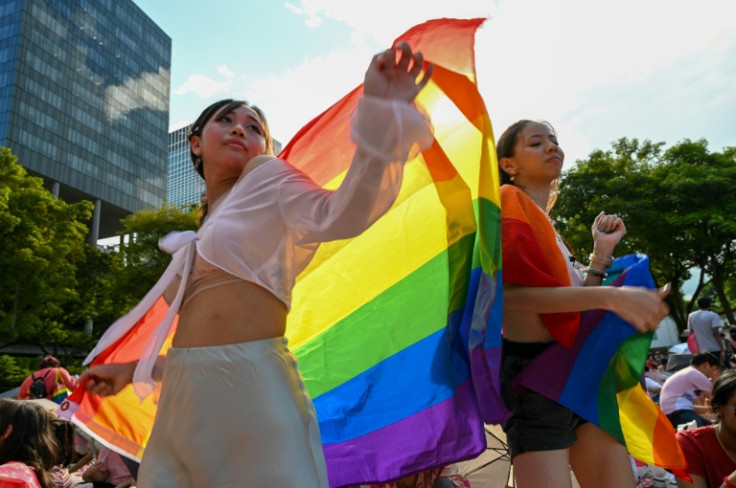LGBTQ Singaporeans welcome sex law repeal, decry marriage exclusion
Singapore's LGBTQ community on Monday welcomed the government's plan to decriminalise gay sex.

Singapore's LGBTQ community on Monday welcomed the government's plan to decriminalise gay sex but said amending the constitution to prevent legal challenges to the traditional definition of marriage would promote further inequality.
Prime Minister Lee Hsien Loong announced Sunday that the city-state would repeal the colonial-era law, section 377A, which penalises sex between men with up to two years in jail.
The law does not cover sex between women.
Gay rights campaigners have long said section 377A runs counter to the affluent city-state's vibrant culture and have unsuccessfully challenged the law in court.
Roy Tan, one of several people who had unsuccessfully challenged the law in court, said repealing 377A would make him "feel more like I belonged in Singapore, now that the state no longer regards me as a criminal".
"Removing the stigma wrought by Section 377A would make it easier for more closeted gay men to come out and embrace their sexuality instead of hiding their identities in shame, together with all the psychological damage that it causes," he told AFP.
"Too many elderly LGBT people are living their lives alone and it would be a tragedy if most died solitary and uncared for."
Despite the repeal, Lee's announcement Sunday also put barriers on the path to full marriage equality.
Currently, people can still challenge the constitutionality of the definition of marriage, but Lee said doing so would risk the court stepping into policy-making.
"Judges interpret and apply the law... They have neither the expertise nor the mandate to settle political questions, nor rule on social norms and values," Lee said.
To prevent that, Lee said the government will amend the constitution to "safeguard the institution of marriage" -- which will remain defined as between a man and a woman.
This sparked concerns from activists that the changes would "enshrine" the definition of marriage in the constitution.
Late on Monday, Law Minister K. Shanmugam said that was not the plan.
The planned amendments would clearly state in the constitution that it is parliament's prerogative to define marriage as between a man and a woman, and to legislate policies on the basis of that definition, he told local media.
"I want to be clear because I think there's some confusion. The definition of marriage is not going to be in the constitution," the Straits Times newspaper quoted him as saying.
Reactions to Lee's Facebook post on repealing the law were mixed, with some lauding the move as a "bold step" while others said they were "saddened" by the decision.
A move to amend the constitution will likely sail through parliament if undertaken, as Lee's ruling People's Action Party has a more than two-thirds majority.
Challenges to 377A largely revolved around a constitutional provision that guarantees citizens equality and equal protection under the law.
The LGBTQ community -- in a statement signed by more than 20 groups -- said they opposed any further laws and constitutional changes to protect the traditional definition of marriage as doing so would promote unequal treatment.
Activist Tan said shielding the current definition of marriage from legal challenges is "a retrogressive step".
"It denigrates the worth of same-sex couples and denies them the rights that heterosexual couples enjoy and take for granted," he told AFP.
But Maria Sjodin, executive director at US-based LGBTQ rights group OutRight Action International said even the small step of the repeal could "hopefully also inspire the continued struggle across the world to remove the laws that hinder equality and respect for LGBTQ people everywhere".
According to a 2020 report by the International Lesbian, Gay, Bisexual, Trans and Intersex Association (ILGA), homosexuality is prohibited in 69 countries, including 11 where it is punishable by death.

© Copyright AFP 2025. All rights reserved.





















